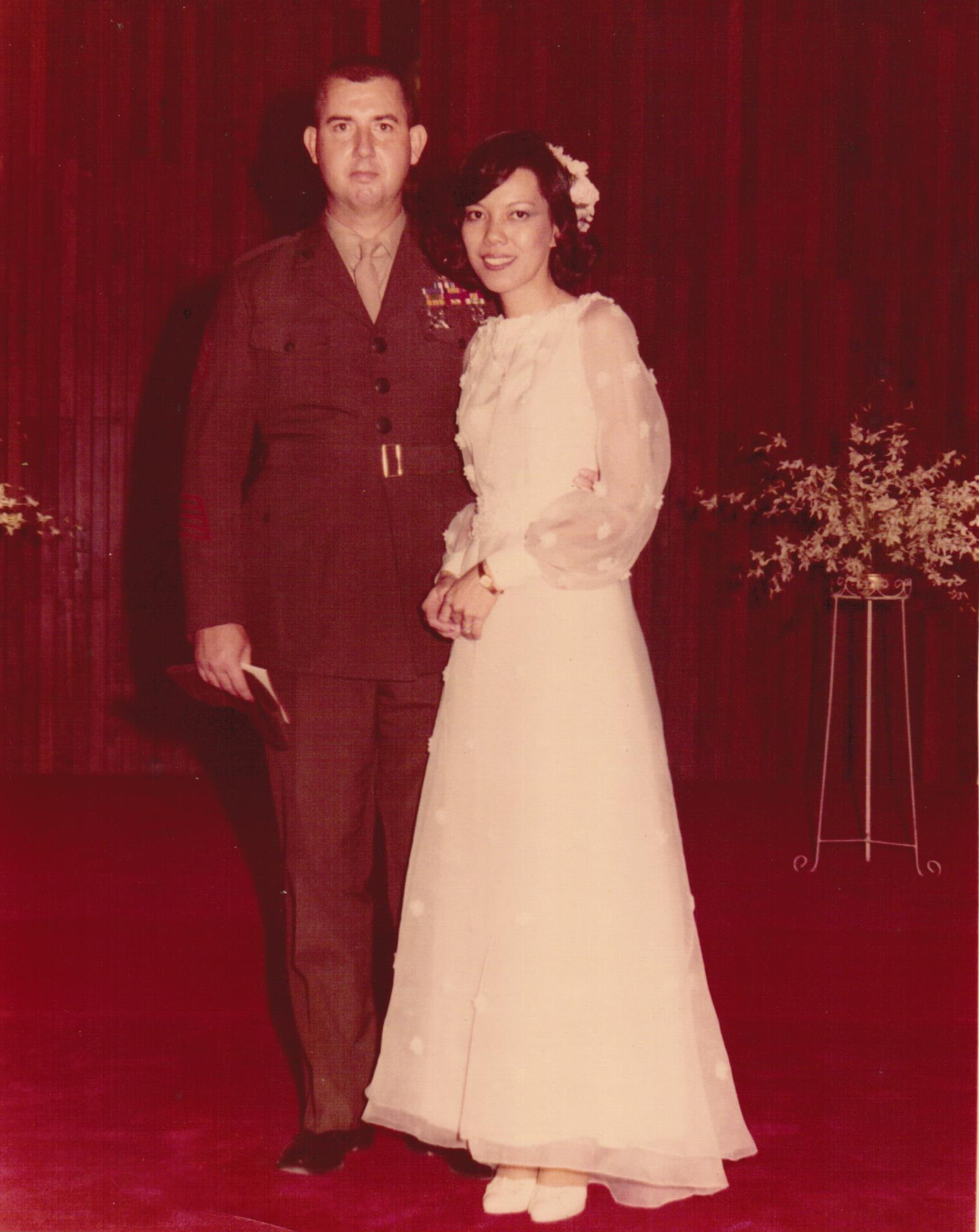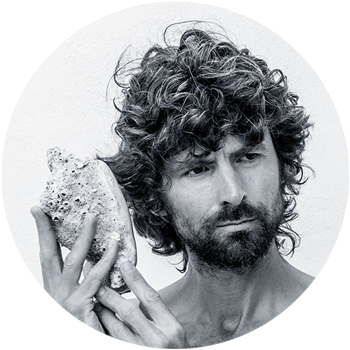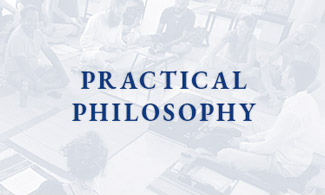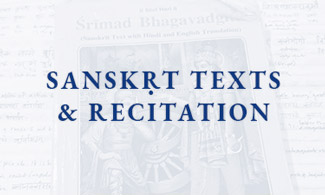
Love Story
The following VIGNETTE by William S Whorton is another of the moving pieces of writing he has shared with me and touches on many of the same themes that we discuss in episode 20 of the Whole Life Yoga podcast. As usual, Bill’s writing is infused with plenty of practical wisdom and rich insights. I hope you appreciate it as much as I do.
VIGNETTE: CREATING HARMONY FROM CULTURAL DIFFERENCES —- A LOVE STORY. THE COURTSHIP AND MARRIAGE OF A U.S. MARINE FROM KANSAS AND A THAI BUSINESSWOMAN FROM BANGKOK’S CHINATOWN. (PART 1, 1976 – 1984).
Dedicated to the Memory of:
Tang, Hui Suang (Karnchana “Dana” Whorton, Beautiful Wife)
Tang, Ki Min (“Father”, Father-in-Law)
Helen Whorton (Mother)
Viwat Athinantakorn (Brother-in-Law)
Vanida Athinantakorn (Sister-in-Law)
Eleanor Dawson (Teochew Chinese Teacher)
By: Captain William S. Whorton, USMC (Retired).
Introduction. This “Love Story” might be interesting for some because I am Kansan/American from a certain era (1941 – Until Death), U.S. MARINE (1959 – Until Death), and “Lover” of Asian people, thinking and culture (1960 – Until Death). Beautiful Wife (Dana) is pure Chinese from birth until death. Dana was born in Bangkok’s Siang Kong Chinatown in 1947 and lived there until our marriage in 1979. Dana’s first language with family and friends was Teochew Chinese. Her second language, Thai. Her third and fourth languages were Mandarin Chinese and English. Thus, we are pure Kansan/American/U.S. Marine; and, Chinese/Thai in our core values and inner thinking. The idea of marrying outside our cultures was utterly foreign to both our expectations or thoughts regarding who we would marry. My sister-in-law, Vanida, whom I dearly love, was frequently fond of saying how Dana had had so many rich Chinese/Thai boy friends from wealthy families before our marriage. Then, her voice would slowly trail off as she looked at her (relatively impoverished U.S. Marine/University Lecturer) brother-in-law. My only (pre-marriage) “GREAT LOVE” was a very beautiful, elegant, intelligent, witty, and charming “California Girl” from San Pedro, California. I was a Corporal in the U.S. Marine Corps and the young lady said I could either marry her or the U.S. Marine Corps but not both. I desperately loved the girl. However, I was passionate about being a MARINE. In 1963 I re-enlisted in the Marine Corps for 6-years and that was the end. She told me, “I will not be number 2 for anyone. If I marry you, I will always be number 2.” I recognized and understood she was fair and correct in her view. However, it left me with a broken heart I thought would never heal.
The key fact and reality is that in Dana’s and my cultural background and history we are completely different. However, in our married lives together we became “One”. How we became a “Harmonious One” during our now 45-years of marriage is the story of two “Vignettes”. I have separated “Love Story” into two parts. This separation arose because during our 45 years of marriage, friends, acquaintances, students, and family have taken particular and specific interest in two major aspects of our marriage. Some have had particular interest in the history and details of our “Courtship” and initial life together. Others have been more interested in how our later overall life together developed and grew. I believe this separation into “Parts 1 & 2” makes the writing of this “Vignette” more relaxed and without cramming too much information and detail into one “Vignette” causing fatigue and boredom to the reader.
THAILAND 1976 AND ME. Some background on how I came to have the opportunity to meet Dana is necessary for coherent context. I arrived in Thailand January 27, 1976. I was a Staff Sergeant (E-6) in the U.S. Marine Corps. I had an “Official Passport” issued by the U.S. State Department. Officially my title was, “Liaison Noncommissioned Officer, Joint Casualty Resolution Center (JCRC)”. JCRC was a joint service organization under the Department of Defense dealing with military and civilians Missing-In-Action and Prisoners-Of-War (MIA/POW). When I arrived, there was a great deal of turmoil in Thailand regarding U.S. military personnel. The Thai Government under the leadership of Prime Minister M.R. Kukrit Pramoj “invited” around 40,000 U.S. military personnel to leave Thailand. The U.S. military swiftly departed Thailand. After a great deal of bureaucratic confusion lasting several months, it was decided by “Higher Authority” that a JCRC Liaison Office manned by two JCRC members be permanently established in the American Embassy, Bangkok. The two JCRC members were an Air Force Lt. Col. (Paul D. Mather) and an USMC Staff Sergeant (me). I believe it is accurate to state that out of the 40,000 GIs kicked out of Thailand two were allowed to remain.
Once Paul and I arrived at the U.S. Embassy, I mentioned one of us had to learn to speak Thai. Paul looked at me and said, “Guess who?” I had already programmed myself for that assignment because one of my duties was that of “Linguist” (Vietnamese, French, and some Mandarin Chinese). Enthusiastically, because of the opportunity to study a new language, I took about $1,000.00 of my own money and went to the BERLITZ School of Languages. Paul took the job of doing all the office work and gave me three weeks “unofficial leave” while I enrolled in the BERLITZ Thai “Total Immersion” Course for 8-hours per day, 6-days a week, 3-weeks. At the end of this course I started studying (besides Thai) Mandarin Chinese, German, and Laotian. My Chinese teacher, Paul Choong, was outstanding so I agreed to meet him at his office on a regular basis. Paul was working as an “account executive” at Ogilvy & Mather (Thailand), a world- famous advertising agency. After entering his office for the first time I saw the woman who by “Spontaneous Intuition” would become my wife.
SPONTANEOUS INTUITION. The term “Spontaneous Intuition” can have different meanings, ideas, and interpretations for different people. In another “Vignette” (THE ONLY WHITE BOY IN AN ALL-BLACK CHURCH IN JUNCTION CITY, KANSAS 1957-1959) I examined and focused on a “Religious” aspect of “Spontaneous Intuition”. In this particular context I will focus on a Philosophical and Practical aspect of this Mind/Spiritual State of Inner Consciousness. For me, “Spontaneous Intuition” is an “Intangible” whose “Being” abides in my Mind’s Inner Consciousness in the realm of “No Words”. It’s Being exists in an Intangible THAT which, while Intangible (to my normal consciousness), is both concrete reality and fact. My personal Meditation Concentration is so poorly developed I cannot call THAT up on command. However, throughout my life, I have always been “open” to this realm of THAT “Disclosing Awareness”, both Religious and Practical, to me. This “Intangible” THAT is not some supernatural, magical, religious abstraction or fantasy. My belief in this THAT does not depend on some kind of blind “Faith” or “Devotion”. Rather, I have trust and confidence in this THAT and what it “Sees” because it has always been “Life-Affirming and Life-Saving” in objective concrete realities, situations, and conditions during my life. For example, in infantry combat in Vietnam, I was leading my platoon of Marines through a village in which everyday activities seemed quite normal. At the edge of the village, I had to cross a large rice field on the way to my objective. As I started to move across the rice field in which farmers were working, I “froze”. I “knew” (via “Spontaneous Intuition”) that if I moved my platoon across that field, we would be hit hard from the village we had just moved through and surrounding locations. I sent one squad across the field but prepared to cover them with heavy supporting fires. There was a hellacious opening of enemy fire from all around us but we were ready and reacted immediately. Several of my Marines had bullet holes in their utility uniforms but no Marine was wounded. Without this “seeing” my platoon would have been caught in a large open field without protection and slaughtered. This THAT with its meta-consciousness can “see” reality which normal consciousness cannot. There is nothing “supernatural” or “magical” about this. It (the Intangible “Spontaneous Intuition”) comes from our (Tangible) experiences, training, education, intelligence, character and luck. Luck is most important! Another example of “Spontaneous Intuition” is when I resigned my Regular Marine Corps Officer’s Commission as a Captain after 10 years of service to go to university to study Philosophy and Languages. I was in Vietnam toward the end of my second tour of duty in combat as Senior Advisor to a Vietnamese Army Infantry Battalion. I had been awarded the Silver Star, Bronze Star (Meritorious Service in Combat) and Purple Heart. I had great fitness reports. The world should have been Heaven for me. Instead, I was in a Hell of spiritual and mental disintegration and confusion so profound I believed I was unfit to remain a U.S. Marine Corps Officer in non-combat peacetime duty. My “Spontaneous Intuition” directed me to resign my regular officer’s commission and go to university to study Philosophy to learn how to repair my broken spirit and mind. This action saved my life. Had I not obeyed my “Spontaneous Intuition” there would have been: possible suicide caused by spiritual nihilism, alcoholism, drugs, rage and anger issues, accompanied by different forms of self-destruction. Instead, I spent almost six years with seven Great Teachers studying Eastern and Western Philosophies “seeking Truth”. After completion of formal university studies (bachelor of general studies; two master degrees in Philosophy), I was granted permission to return to the U.S. Marine Corps as a Staff Sergeant (E-6). I returned gratefully with a calm mind and had another remarkably happy and successful 10 years of service before retirement.
It seems to me that my “Spontaneous Intuition” is in a state of “Being” in my Mind’s Inner Consciousness in which there is a “Seeing” or “Awareness” which abides in “Non-Attachment” (i.e. to emotions, feelings, objects) or “Emptiness”. While abiding in “Emptiness” there can be “clarity in seeing” because there is no passion or desire or emotional attachment arising to effect some action based on desire or emotion. Desire and its Ego-Based concomitant attachment to an emotion, feeling, or object is my greatest enemy. I have confidence and trust in my “Spontaneous Intuition” because I believe and trust from concrete experiences that THAT is unattached to desire/emotion and Life-Affirming. If this were not the case, then the following would seem an act of madness or insanity!
COURTSHIP! It was in July 1976 when I walked into Paul Choong’s office to study Chinese and saw a very beautiful, elegant, obviously Chinese lady with the brightest, liveliest, most intelligent eyes I had ever seen. My “Spontaneous Intuition” at that moment, was, ‘You must marry this woman!’ I was stunned. I was almost 35 years old and still in a state of heartbreak over my first “Great Love”. I was also having a good time in the nightlife scene of Bangkok. The last thing on my mind, or, what I wanted to do, was get married. However, my “Spontaneous Intuition” had disclosed a “truth” to me and I strongly felt the necessity to act on what had been disclosed. As I talked with Paul Choong about Dana, I started to realize the immensity of difficulties I would face regarding courting her. That is, she was born, raised and educated in Bangkok’s Chinatown and after graduation from high school had gone to Penang, Malaysia for two years to attend a secretarial school and also study English and Mandarin Chinese. (Note: For Thai-Chinese families of this era it was quite common to send kids to [Mainland] China, Taiwan, Hong Kong, or Chinese Schools in Laos [boys] or Malaysia [girls). While in Penang she lived with a Hokkien (Fujian or Fukien) family and learned Hokkien Chinese while working to perfect her Mandarin Chinese and English. My problem at this point was how to persuade a perfect stranger from a different race, nationality, and culture to marry me.
As a U.S. Marine I pondered my problem through SMEAC (Situation, Mission, Execution, Administration and logistics, Command and communication). The first thing I had to do was look at objective reality/Situation from her point of view and background. I strongly believe the following description of the reality of the situation will give the reader a more detailed and clearer picture of the difficulties that had to be concretely faced.
In this era, 1976, whenever Asian ladies were seen in public with foreigners it was widely automatically assumed the ladies were prostitutes. Stereotypes are stereotypes for a reason. At that time, I estimate that around 90% of the ladies I saw in public with foreigners were, in fact, prostitutes. Therefore, Dana when she married me would go from being assumed a nice Thai lady to being assumed a prostitute. To marry me she would have to be willing to endure this humiliation. Of course, this would not apply to friends and family. However, it still would be a real humiliation that must be faced and endured.
Another vital situation that had to be faced are the cross-cultural differences of background clashing cultural realities while living together as a married couple. There is an absolutely different realm of experiences between people who live totally immersed in other cultures and those who do not. Marriage is Total Immersion. This is a serious life-changing event. By “serious life-changing” I mean exactly that! If one lives, through choice or assignment, totally immersed in a foreign country and fails to adapt, Physically, Mentally, Spiritually or Culturally, this failure can result in death, insanity, and/or severe mental, spiritual trauma, and disintegration. For example, while a senior battalion advisor in Vietnam I received information from my Vietnamese counterpart that a fellow U.S. Army senior battalion advisor whom I deeply respected for his abilities in combat was going to be killed by Vietnamese soldiers from his battalion. He had continually offended his battalion’s officers and soldiers by his crude, loudly voiced, impolite, and brutally harsh criticisms. I immediately contacted my Regimental Senior Advisor. After describing the situation, I told him to tell his counterpart that there had been a death in the officer’s family and that he would immediately be extracted to go home. This officer then went to an U.S. unit and was awarded the Distinguished Service Cross, our nation’s second highest medal for valor in combat. Not everybody can live totally immersed with people from an alien culture! I found this out in my own advisory team. One member of my four-man team was an older experienced soldier but was showing signs of stress because of living in a world of Vietnamese. I made the very bad mistake of not paying close attention to this situation hoping he would “shake it off”. One day, when I was not present, he exploded and believed he was being eaten by “bugs”. In this state he loaded his rifle and began shooting the “bugs”. While re-loading his rifle my Team Sergeant knocked him out, roped him up and evacuated him. Fortunately, nobody was hurt. I followed up on his condition and treatment. He was hospitalized then released and put back on active duty in Vietnam in a non-Vietnamese working environment. I was able to communicate to him that his fitness report would be a good one. I told him I believed I had to accept responsibility for what had happened along with those who had mal-assigned him to this kind of duty. After self-examination I realized my mistake(s) and reflected on what consequences might have happened.
This kind of situation permeates every profession. I spent almost nine years working at the American Embassy, Bangkok. There were cases there when persons or families had to be sent “home” because they could not “adapt” to even a truly “International” environment such as Bangkok; or, working mostly with fellow Americans. At CHULALONGKORN University where I taught English for 31 years as a full-time and part-time lecturer, I strongly felt the necessity to advise several of my colleagues to “go home”. In one case I was worried about the life of my colleague because of his racist language and actions. In several other situations the colleagues were clearly mentally and spiritually disintegrating. Signs of this were universal condemnation of everything “Thai”. When personal feelings and emotions get to this point, departing the country is the only thing that makes sense. I involved myself in these situations because I reflected on my previous failure to protect my soldier in Vietnam. It is a horrible thing to see a fellow human being self-destruct. Compassion, I had learned from experience, may lead to a more beneficial result.
Married life is “Total Immersion”. Why would any Thai/Chinese young lady want to change her living style to adapt to share the living style of a foreigner? The problem of “Life Style” is a big one in this particular situation. Another aspect of the problem was, although Dana in 1976 was very “International” in business, entertainment (music and movies), food, foreign language environments, she was Pure Confucian Chinese to her bone marrow in family, cultural beliefs, behaviors, and personal life. I was aware of successful cultural inter-marriages. However, in many of these cases the marriage partners were born and raised in an “international” environment and had gone to international schools meeting similarly raised kids. These kids were “cosmopolitan” in a natural way. Dana was not like this. She was a “Chinatown” girl born-and-bred! The fact that she worked at a “Foreign” advertising agency meant nothing. There would be no problem for her to compartmentalize and differentiate between what is work from what is home. Marriage is definitely “home”. How was it going to work out that I would be someone she would want to come home to after a tough day at the office?
In summary of the examples and personal experiences provided above, I want to emphasize the awareness I had about the possibilities and potentialities regarding mental and spiritual self-destruction inherent in this cross-cultural endeavor. I risked this because of my trust and confidence in my “Spontaneous Intuition”.
While keeping all the above in mind I had to plan on how I would introduce the notion that we should be man and wife. This was very difficult and I had to do quite a bit of thinking about how I would ask Dana to marry me. The manner of the way I asked her to marry me would format both her reaction and the entire process of the results that followed. I decided that the direct approach is the way I would go. During our second or third meeting (Note: Neither Dana nor I can remember which.), I told Dana that I believed we would be married one day. This statement brought forth from Dana a lightning and firm rejection of my belief. I listened carefully to what Dana said. She focused on the “Foreign” quality of my manners and my lack of propriety and politeness. She also focused heavily on her “Chinese-ness” and that of her family, especially her father. Also, how I as a “Foreigner” could never understand or fit into that world. She spent quite a bit of time on how I could never be able to communicate with her father or understand his or her culture. The overall reaction was one I completely expected. However, it was a wonderful window into her thinking and, thus, an opening to my next action. Dana’s completely Chinese response clarified my strategy. Endurance would be the key. Asians, overall, view Americans as being without peer in terms of technology and scientific development. However, they view us equally as being weak and without guts or endurance in ability to suffer mental and spiritual hardship to attain goals over time. Dana did not understand that I was not going to stop until I was convinced I had no chance whatsoever. Dana did not understand what being a Marine is! Cultural misunderstandings are a two-way street!
Making a plan was the next step (Part of Execution in SMEAC!). I had listened carefully while Dana was talking to me. The significant parts I had picked out were the following. Dana was intensely proud of her Chinese background. Her family, especially her Father, was very important to her. She would never marry anyone who could not “fit in”, or, could not communicate easily with Father and family. She repeatedly reiterated that as a “foreigner” I could never be part of her family because I could not communicate in Teochew Chinese. Also, my being a “foreigner” would keep me from becoming part of her Chinese culture and society. My plan would have to focus on how to overcome Dana’s picture of me as someone who could never win the respect and affection of her Teochew Chinese Father, family, and friends. I decided that learning to speak Teochew Chinese would be my first step. As I have done my entire life when in difficulty, I looked for a True Teacher. I found the perfect Teacher.
Mrs. Eleanor Dawson was the wife of a well-known American reporter. She was born into a Teochew family in Vietnam and had native fluency in Cantonese Chinese, Mandarin Chinese, Vietnamese and English. We could speak naturally with each other in either English or Vietnamese. I had met Eleanor along with her husband after joining the Foreign Correspondents’ Club of Thailand. At our introduction she had spoken with pride about her Teochew family background. I remembered that. I met with Eleanor and explained my dilemma. She asked about Dana’s background and began laughing when I said Dana lived in Chinatown’s Siang Kong area. She told me to forget about marrying Dana. She did not want to take my money for teaching because of my ignorance. Eleanor explained as follows. Siang Kong Chinese were Chinatown’s elite businessmen. They were almost all Teochew Chinese. Teochew businessmen were widely recognized as China’s smartest, toughest, most aggressive businessmen although some Shanghainese might disagree. These Siang Kong Chinese all had one absolute belief: “REAL MEN MAKE LOTS OF MONEY!” Eleanor explained that as a Siang Kong Chinese daughter, Dana came from a family with real money. She and her father would look at me as a loser because as a professional U.S. Marine I could never “get rich”. Also, Eleanor further explained, Dana and her family would not truly understand the nature of my personal professional successes in my military career and philosophical studies. However, as long as I understood the true probability of my lack of success, Eleanor was prepared to teach me.
Dana’s “rejection slip” was delivered in August 1976. For the next two years I periodically tried to reconnect with Dana by telephone only to have all my calls rejected. I would see her when studying Mandarin Chinese with Paul Choong but codes of politeness forbade any kind of personal interaction. However, I was not “pining away” or “mooning” over a lost love during these two years. I was very busy with work. I was travelling to refugee camps all over Thailand, Malaysia, and the Philippines interviewing Indochinese refugees. In 1977 I flew on U.S. Air Force 1 as a staff member of President Carter’s Commission (the Woodcock Commission) to Hanoi and Vientiane. I had also become addicted to studying languages and had tutors for studying nine languages, Eastern and Western. I was also making a number of new friends at the American Embassy, the Foreign Correspondents Club, and the SIAM Society. I attribute much of this activity to the encouragement of my boss, Lt. Col. Paul D. Mather, U. S. Air Force. Paul is one of the greatest social and professional “communicators” I have ever known. He taught me much regarding the art of making friends in our State Department environment. As a result of Paul’s guidance and example, I had many wonderful experiences with truly interesting people working at the embassy. In several cases I made lifelong great friends. Finally, in August 1978, after two years, Dana answered a phone call! I was very happy with this breakthrough and made plans to proceed with “Operation Dana”.
This next phase of “Operation Dana” lasted from August 1978 until our marriage July 29, 1979. Dana accepted my phone calls and we went out on “dates”. I remember calling her every night I was in Bangkok and we would talk about matters in a kind of “getting-to-know-you” way. I realized there would be no “I love you truly” kind of conversations or discussions. The words “I love you” have no meaning in Dana’s world. The fact I was working hard learning Teochew and reading and writing Chinese had meaning because it showed concrete “Sincerity”. The fact that I was still telephoning showed endurance. Our talks only confirmed the correctness of my “Spontaneous Intuition”. Dana was and is beautiful, charming, witty, vivacious, practical, rich in profound common sense, and extraordinarily intelligent. In late June 1979 I called on my Mother for help. I asked her to come to Thailand to help me marry Dana. My Mother arrived in Thailand in early July. I told Dana that my Mother had come to Thailand to meet her Father. Dana said she wanted to talk with her older brother. After that talk it was agreed that we would all meet at THAI HUA HONG, her brother’s shop. One of Dana’s younger brothers picked Mom and me up at my apartment and drove us to THAI HUA HONG. Chairs were arranged and tea was immediately served. I started speaking Teochew with Dana’s Father and family. This surprised everybody. My Mother did not understand one word of anything. She performed beautifully by smiling at everyone. Mom had “presence”. Her many years of high rank in the U.S. Army’s Civil Service had given her an air of authority that was palpable. There were five of Dana’s eldest brother’s children (now my nieces and nephews) watching with intense curiosity while sitting on stairs to the second floor. The meeting went very well. I immediately liked my future father-in-law, eldest brother-in-law and family. I felt they liked me. I later found out from my sister-in-law that my “direct approach” had been highly approved of because it was direct and sincere. When my sister-in-law raised the point about “SIN SOD” (Marriage Price) my father-in law said, “Shut-up! These people are foreigners and will think us beggars if we ask for money.” I was very happy about this because I had no money. (Cultural Note: “SIN SOD” is in Chinese/Thai society a very important consideration. I have been to a number of Chinese/Thai wedding parties in which the “SIN SOD” was displayed. In one example, I saw a large bed covered with Chinese gold bars with one “paper” corner for land deeds. Sometimes there are “seven gates” where guests offer gold in various forms to the bride. In a Chinese/Thai wedding, Money is God! My future father-in-law had saved my impoverished face!) There was polite chit-chat and my sister-in-law said she would set the marriage date after she talked with her Chinese astrologer. My Mother had to return to America in early August 1979. It was clear that Mom would not be able to attend this wedding. (Note: In Thailand there are “two weddings”. One “marriage” is the formal, legal registration of the marriage at a Thai government district office where marriage documents are signed by the District Chief and issued as proof of legal marriage. The second “marriage” is considered by Thai-Chinese people as the “Real Wedding” and takes place with religious ceremonies in a gathering of families and friends.) My Mother then did something of great importance to help me “seal the deal”. She demanded that she be present at one of the “weddings”. This wedding had to be the official one at the District Office. The family felt this was very reasonable. Dana said July 29 would be convenient for her. Going back to my apartment that night was one of the happiest most satisfying times of my life!
July 29, 1979 quickly arrived and it was a workday. In the morning I took Mom to my office at the American Embassy. Dana met us there and the three of us went to the BANG RAK (Literally: “LOVE DISTRICT”) District Office. There we met my Thai and Laotian Teacher Uthai Rattanavong. I had been in Asia long enough to know it is infinitely better to have an experienced local “negotiator” with you to deal with officials than do it alone. Uthai was a great Teacher and dear friend. He immediately cut through all difficulties by openly putting money into a used envelope and while giving it to the clerk saying, “Some used things appear used and without value, but, in reality, have value!” He also acted as my interpreter with the clerk and District Chief. Mom smiled at everybody. Dana and I answered some basic questions from the District Chief after which we got the signed documents and were legally (only) married. Dana went back to her office. Mom, Uthai and I went to lunch. I took Mom back to the apartment and went back to work.
I want to state I firmly believe I owe my marriage to my Mother. Without the catalyst of her presence demanding a decision, I think it is very probable that Dana could have put marriage decision-making off to an indefinite future. She would have had no problem “waiting me out”. Since July 29 was not the “real wedding” Dana returned to stay at her home. Mom returned to Hawaii in a happy state because she had helped her son. I am always grateful to my wonderful Mother!
September 1, 1979 came and this was the big day. One of Dana’s close friends picked me up at my apartment and drove me to her home where her family would “give” her to me. I was wearing my Marine Corps dress green uniform. Dana was beautiful in a white wedding gown. We drove to a small Protestant Church. My boss, Lt. Col. Paul Mather, USAF, was my best man. My Father-in-Law was present and several nieces were flower girls. Our guests were close friends and family. We served only a few refreshments. I can honestly state that my wedding was the most impoverished one I ever attended! However, while lacking in decoration and luxury it was very warm and friendly. There were many there who knew about what I had endured in the previous three years and celebrated the happy realization of my goal. Of course, there were friends of Dana who wondered what had happened to her mind in marrying a guy with no money and no real opportunity to make money. Later, I asked Dana why she married me. She replied, “I never had any boyfriend who tried so hard.” One thing was very clear to me. Dana did not have any feeling of “Love” or “Romance” for me in a Western meaning. It was much better. Dana respected me. In the Chinese world “Respect” is absolutely better than “Love”.
After the wedding I took Dana home. The reader might anticipate that something “Romantic” would take place at this particular time. Wrong! The first demand by Dana was a review of all documents relating to my financial situation. At the end of that review I was firmly told, “no shit-between-his-toes-farmer would dare get married on that amount of money. We are going to start a savings program today!” I began the first of innumerable “Yes Dear” responses. I need to explain, “Yes Dear” means I am supremely happy that I married a woman infinitely smarter and more practical than I am. Because of “Beautiful Wife” I currently enjoy a lifestyle I could never have come close to attaining by myself. I owe my happy life to Dana.
“FATHER”. In my opinion, the most important ingredient to becoming a “Harmonious One” with Dana was made within one week after our marriage ceremony. I decided to visit Dana’s Father in his shop which was not far from the American Embassy. I went to his shop where my father-in-law, workers, and two of Dana’s younger brothers were cutting up part of a ship to get at the copper to sell later. Father rushed to me and asked in a very excited and worried manner, “What’s wrong! What’s wrong!” (Note: When I recounted this to Dana, she taught me that it was “not Chinese” for the son-in-law to visit his father-in-law so soon after marriage unless something bad had happened. When a Chinese woman marries, she loses her family name and now “belongs” to the husband’s family. Thus, my visit was totally unexpected and not culturally correct. Dana taught me the Teochew for, “I just dropped by for tea and a chance to shoot-the-breeze.”) I calmed Father down and as soon as he understood I had just come to say hello he poured tea. After he poured tea, he held my hand and we began chatting (always in Teochew). Father had made a very strong impression on me as he did with my closest friends at my wedding. He was very tall for a Chinese and his never-smiling face was chiseled like granite. He was obviously a very hard and tough man. However, his eyes mirrored Dana’s with their great liveliness and intelligence. Over 40 years of living in Thailand had not made a scratch on his character. He was pure Chinese in thinking, belief and manner. He never changed his Chinese citizenship to become Thai. I wanted to learn about all he had experienced in his life. I wanted to study China, Chinese people, thinking, culture, language and life through his eyes and wisdom. I made my request to study all things Chinese from him quite clear. He started to tell me about his life.
When we spoke together it was always in Teochew. Also, the conversation duration time never varied —- one-hour. Father quickly learned the Teochew I knew and adapted himself to what I would understand while teaching me new words. Fortunately, when I could not make myself understood because of lack of fluency, I could clarify my error by writing the Chinese character or string of characters. Father could do the same for me. He had a very strong accent which I learned to use. He also taught me how to differentiate between the five Teochew dialects which are mutually intelligible.
Father understood immediately what I wanted to learn from him and he was enthusiastic in his responses. His background was not unusual for a Siang Kong successful businessman. He had left China around 1935. (Note: Specific Dates are not important to many Chinese. I will select dates and times that seem reasonable from the context of our conversations. However, I caution the reader that these dates are generalities and not absolutely accurate. I was interested in the flow of our discussion and did not want to irritate Father with what to him would be unimportant trivialities.) He was young but already married with a very young son (Dana’s eldest brother) when he departed China. His father, already in Thailand, (Dana’s grandfather) had paid his passage on a small ship which departed from SWATOW (Mandarin: SHANTOU). SWATOW was the jumping off point for millions of Cantonese, Hokkien/Fukien, and Teochew speaking Chinese to spread over Southeast Asia and the world. Father’s boat was small and steam-powered and had wooden planks, port and starboard sides, for the passengers to sit on during the trip to Bangkok. Father remembered a white foreign “Captain” with a very red face. He believed the Captain was British. Conditions were horrible. When passengers got sick and died they were thrown over the side. After (approximately) 10 days the ship arrived in Bangkok and Father joined his father in Siang Kong. Father initially began working as a coolie carrying heavy sacks of rice up very narrow planks to ship holds. He saved some money and became a walking noodle vendor. (Note: Pictures of ship-loading coolies and real old-fashioned “walking” noodle barrels with clacker for announcing and charcoal for warming the noodles can be seen in local museums in Bangkok today.) After earning a bit more money, he bought cloth and sold it throughout Thailand. Later on trips we took throughout Thailand, he would delight in relating distances between villages, towns and cities. He knew them all. Finally, he set up his trading business and it was successful. This process lasted approximately nine years and then Father sent for Dana’s Mother and eldest brother. When I met Father’s friends, I discovered his story was not uncommon in any way with other Overseas Chinese. Details of personal experiences would vary with individuals. However, the overall “migrating-for-opportunity-and-wealth” narrative theme was consistent. As an American all I had to do was reflect on my country’s westward migration history and remember so many Hollywood movies in which the characters would say, “I’m going west because that’s where the opportunity/land/gold is!” Thailand was a land of opportunity.
Father was one of the smartest most intelligent people I ever met. His intelligence mirrored that of my Mother. They were only different in what they loved. My Mother’s “Great Love” was the U.S. Army, especially the Cavalry. A secondary love was books. My Father-in-Law worshipped Money. From our conversations I estimate Father had approximately a fourth-grade formal education. This meant nothing because he was an avid reader and had an insatiable interest in what was going on in the world. For example, he had followed the U.S. war in Indochina with great interest. His overall strategic philosophical examination and analysis of what had happened to U.S. forces in Vietnam was far superior to that of most so-called “intellectual” officers, CIA, and State Department officials I met later. Our only intellectual disagreement was over the Korean War. I called the war a “draw”. Father believed it was a big Chinese victory. In my opinion, Father had seen too many Chinese-made movies popular in Chinatown. Chinese- made war movies and those made in Hollywood have very different biases, information and “facts”! We had a lot of fun in “arguing”! We spent hundreds of hours discussing “The Rise of China” and the “Decline of the West”. Included within these discussions was the competition and struggle for “World Hegemony” between the U.S. and China. Father’s views and opinions were, in 1979, prescient and incredibly accurate. I do not want to claim Father was uniquely brilliant. His views mirrored those of all the Chinese businessmen I talked with in that era. I will examine these views more thoroughly in another “Vignette”.
Soon after our first meeting Father started taking me around Siang Kong to meet his friends. We always walked around holding hands. (Note: In Vietnamese and Chinese culture hand-holding among men is common. In Vietnam I would walk holding hands with my counterpart. With Father it was just a cultural normality.) He always introduced me as his “son-in-law working at the American Embassy”. This gave me much higher status than being a Marine. The fact that I spoke fairly fluent Teochew clearly amazed Father’s friends. Siang Kong Chinese were used to the idea that there were some foreigners fluent in Mandarin and Cantonese Chinese. However, only a very few Western missionaries (mostly deceased) had worked to realize real fluency in Teochew. Father took me to his favorite tea shops. Some evenings we would go to Teochew Opera and he would explain the story while I would try to read the scrolling Chinese for the Mandarin/Cantonese/Hokkien speakers. I never could understand any spoken Chinese in Teochew Opera.
I now had three Teochew teachers, Eleanor Dawson, Beautiful Wife, and Father. My relationships with Dana’s seven brothers and sisters and circle of friends developed rapidly and naturally. I was adopted into Dana’s family and group of friends. Although a “foreigner” I became “part of the family and friends’ woodwork”. I owe all this to my original teacher Eleanor Dawson. She had given me the initial language tools on which I could carve my own relationship with Dana, family, and her friends.
SEPTEMBER 1979 TO SEPTEMBER 1981. From September 1979 to September 1981 married life followed a happy pattern of lots of family activities and travelling around Thailand usually with the SIAM Society. Work continued for both Dana and me. I met Dana’s big boss Mr. William E. Heinicke who was to play a big role later in our lives when Dana became his Personal Assistant for 25-years. (Much more about this in “Vignette” LOVE STORY PART 2.) We enjoyed the same kinds of food. I was convinced long before marriage that Thai food with all its delicious complexities is the (overall) most delicious food in the world. If God decreed to me that I could only eat one kind of food for the rest of my life, it would be Thai. However, we had our favorite Western eating places where we could get French snails or Australian steaks and listen to good piano music while eating. We also enjoyed going to Hollywood and Chinese movies. No two people can live together without arguments but ours were minor.
My biggest shock after marriage was there was no fighting over money. I understood how incompetent I was regarding money. I also understood how incredibly intelligent Dana is about money. I had thought before marriage that there would be conflict over money I would want for my language studies and books. Never a negative word from Dana on these two issues! Dana understood my love of studying languages and books. No problem! She even went one step further and gave the OK for me to spend an occasional evening bar-hopping with buddies of mine. This fell into the category of “The Evil Nature of Men” (Translated from Thai). The rules in this category were, “no love affairs; no disease; do not spend much money; do nothing that causes me loss of face!” The only negative issue I had with Dana about money was a cultural one. With Dana, her cultural Chinese DNA made every financial negotiation with taxi drivers to storekeepers an act of combat in which there were winners and losers. Dana was born into a world which practiced Mercantilism and Negotiation. I, as an easy-going Kansan, was raised in a culture in which everything had a price tag on it and people with more money shared and tipped with those less fortunate. Dana believes I am a sucker. After marriage I was immediately injected into a world in which “Money is God” and the smallest amounts of money assume an importance that to me is just irrelevant. This issue did cause some friction. However, both Dana and I early realized that there are cultural differences that are important to acknowledge and “give way on” and those not important. This aspect of “saving money” was on occasion irritating to me but part of a “much greater good” which is her ability to get money in the bank for our future use. I have always been clear about who is “the boss” regarding money. Dana is “the boss” because I recognize her far greater knowledge and practicality in this arena of our life together.
As I review what I have written above I realize that my picture of Dana regarding money is quite incomplete. The minor cultural conflict depicted and my frustration is quite accurate. However, it is incomplete. I want to provide greater clarity and more complete understanding regarding how Dana “compartmentalizes” doing business as contrasted with the personal morality of donation giving and helping others. Dana is a marvelous negotiator regarding monetary transactions when purchasing or “doing business”. However, she has a very strong sense of giving money to poor people “fighting for their livelihoods”. It is not uncommon to see her run into a crowded street to give money to elderly people pushing carts. She sees them as people who are “fighting” to live. This is what her father did many years ago and what she does every day. Life is a battle. Once, while Personal Assistant to the Chairman (William Heinicke) of one of Asia’s largest Corporations (Minor Group), she was asked, “How much longer will you work for Mr. Heinicke?” Dana’s reply was, “I have a job today.” Life is combat. A job has to fought for and won every day. However, morality is important. For approximately 30 years Dana and I spent well over 100,000 U.S. dollars to educate and provide living expenses to two nephews and one niece. They were members of two poor members (younger sister-in-law and brother-in-law) of our family and were clearly on their way to a life of poverty and self-destruction. Dana and I examined the situation and examined ourselves. We decided to take on the duty of educating them in good schools and providing for their welfare. We did this only because without schooling and a positive influence their road to poverty and degradation was 100% certain. With good schooling and a positive influence at least they would have a chance for a decent life. We did this without expecting any thanks or gratitude. In fact, we received none. Today we have lost all contact with the two boys and have very infrequent contact with the girl. However, all three are working. For both of us this was a self-inflicted moral responsibility which now is Duty Done. I believe this will more clearly show how Dana compartmentalizes Money into “negotiation” on one hand and “morality” on the other.
In August 1981 we left Thailand to go to Okinawa. Okinawa was a wonderful place for us for the next three years. My JCRC superior, Lt. Col. Mather, made sure I received a nice welcome in my new assignment to the division’s Interrogation-Translation Team (ITT). Shortly after arrival, I was awarded the Department of Defense Meritorious Service Medal by the Commanding General of the Third Marine Division. It was a medal, in that era, rarely given to a Gunnery Sergeant (E-7). This rarity was noted by the General when presenting me the medal. Duty with ITT was easy and uncomplicated. Dana had studied some Japanese and is a quick learner. Curious as a cat, she started prowling all over Okinawa. She found me a great Japanese tutor who owned his own night school. She also found us a lovely house to live in at a very inexpensive rent. She got a very good job working for the U.S. Air Force at Kadena Air Force Base. She was Personal Secretary to the Manager of the Kadena Staff NCO Club. After some initial culture shock from meeting “normal Americans” (i.e. not the cultivated state department or business types), she made a number of friends Japanese and American. We basically lived off her salary and banked mine. We made friends with a Japanese husband and wife team from the local Jehovah’s Witness Church who wanted to proselytize their religion on U.S. military bases. We studied Japanese with them and went to some of their church events. I found a third Japanese teacher who was an officer in the Japanese Self-Defense Force. Most important for us was the fact that, quite by accident, I became a “Mentor” in teaching English Public Speaking to a very high-status group of Japanese government officials and bankers. Dana and I were invited to family events with several of these people and developed real friendships. Having Dana as a wife was a golden asset in this environment. These three years went by very quickly.
At the end of 1984 we had a decision to make regarding retirement from the U.S. Marine Corps. There were three possibilities: 1. Remain in the Marines and ‘go for 30’. 2. Retire on Okinawa. 3. Return as a retiree to Thailand.
Reenlisting in the Marine Corps would have benefited us financially and professionally. I had just been selected for promotion to Master Sergeant (E-8). The 3rd Marine Division Intelligence Chief, a Colonel, liked my work teaching English to Japanese officers and requested me to meet the Assistant Division Commander, a Brigadier General, to explain concretely what the next ten years of active duty could look like for me. The general explained he could arrange for me to take a year-long course of study at one of the senior military schools. After that I could work within the Department of Defense system to take a professional path I wanted to follow. I would certainly be rapidly promoted based on my record, schooling and awards. After military retirement I could put on civilian clothes and continue to work in the same system for another retirement. This path would be very financially and professionally rewarding.
A second option could be to remain and retire on Okinawa. Dana and I loved Okinawa and the Okinawan people. I had become a “Mentor” to a very high-status group of Japanese business and government professionals regarding teaching English Public Speaking. I was informed by this group that if we chose to stay on Okinawa, we would receive permanent residence visas to reside in Japan. I could become a university teacher and a bank loan could be arranged to buy a home. Dana could continue working for the U.S. Air Force and get a pension and Social Security. This would be a life of tranquility and happiness within an atmosphere of warm friendships.
The third option was to return to Thailand. There were many reasons to return to Thailand but the two most important were family and the “Transcendental”. Dana and I loved our (her) family. My Father-in-law and I had established an exceptionally strong and warm relationship. Also, Dana and I have a very strong relationship with our other in-laws, nieces, nephews and cousins. In the realm of the “Transcendental”, I understood that in Thailand (but not in the U.S. or Japan) I would be able to find True Teachers to teach and mentor me in my journey along the path of study to Truth. During my JCRC tour of duty in Thailand I had discovered several great spiritual teachers and had confidence that I would be able to study and develop my spiritual knowledge and understanding upon returning to Thailand. Employment would not be a problem because I always loved teaching. I would never become wealthy but I could teach and leave the money-making to Dana!
Dana and I had many “what if” conversations regarding which path to take. In this matter Dana forced me to make the decision. She forced me to make the decision because she was completely confident in two key essential elements critical for our lives together. First, she had complete confidence in her own abilities to succeed wherever we went. Second, she had complete confidence in my ability to do what was best for us in the long term of our lives. In the end, family, the “Transcendental”, and “Life-in-Thailand” won and we returned to Thailand in December 1984. We had become a “Harmonious One”. (END)

James Boag | Whole Life Yoga
The yoga of the whole human being. Practical philosophy, storytelling, movement, inquiry, looking in ways that reach beyond our habitual ways of looking.
Listen to James’ unique whole life yoga perspectives on the WHOLE LIFE YOGA podcast.











